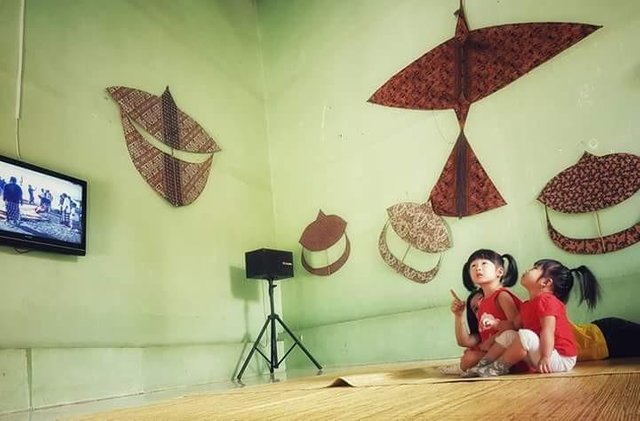Different Kinds of Kites

One alternative fills children's holidays
In addition to interacting with gadgets, the road to the mall or other tourist attractions, the most cheap and exciting is to play kites ...
Kids age-old game
Make the transfer to kids of the age of Now ..
Here are some terms in the kito kite world:
#Paritan is a term that describes a kite that will fight each other to break the rope on the enemy's kite so that the enemy will "lego".
#That is the term to describe the kite that is caught while it is being played. Calls that stuck are usually caused by the circumstances nyinting on the kite or due to negligence of the player.
#Ngoter is a term for a kite that is always in a twirling state when it is raised in the air. Ngerer state is usually caused by the installation of "rope timbo" is less tebat and or kite in a state nyinting and or the kite is made of wood that is thick and hard than usual. Ngoter is very useful to use for "nyempret" kite opponent who has "lego".
#Ng is a term for a kite that can be in a state of calm while on the air. If it is enough wind, players can also kite their own kites for some time to do other activities. Hidden kites are highly liked players and are usually represented by a pliger kite. The causal factor of kite nganteng is usually on the correct "timbo rope", a kite that has a soft posture, there is enough wind and also a pliger kite.
Spray is a term to describe a kite that tries to get a "lego" kite by means of "ngoter" near the kite so that the string or string that is on the "lego" kite is twisted and tied to the kite- kite player.
#TaliTimbo is a rope attached to a kite that is directly attached to the body of the kite. The rope is usually tied to the 4 junction of the kite and the bottom of the overpass. Proper timbo ropes will produce kites in a state of "Nganteng" and comfortable when digunkaan air and invited "paritan".
#Gloom is the term yarn used to raise a kite and is used as a weapon when a kite is in "paritan". The claret is usually very sharp and sufficient to injure the player's hand, so from that it is usually used only slightly (on average 20 meters only).
Pitch is a term to describe a kite that fights not until "lego" so that the two kites that fought pull each other up to the state of the rope in a tight state in the two parituting pemaian, this illustrates that the fight in a state of balance. If so, the only solution is only "jedut" so that one party will be caught who the winner. The thing to note when the case occurs is that the thread we use whether it has a thick or thin type and also the distance the kite that the fan of the player the closer the grave will be when the player's advantage.
#Lego is a term to describe a kite that has been broken from the ropes of a player due to a defeat while being "paritan" with an enemy kite. Kites that have lego usually become material "nyempret" for other kites.
#Ngambul is a term that describes the kite that has lego but never falling to the ground even continue to rise above the sky and lost in the clouds, who knows where hehehhe going down. Usually caused by unstable wind conditions.
#Kedewean is a term to describe kites that have been "lego" not caused by "paritan" but broke up by itself. Usually caused by threads that have been thinned and drawn strongly when the kite is on the air and may also wind in a tight state.
Ke'mse is the accessories used on the kite in the form of black tapes that are usually called vita, ke'm as usual placed on the left and right of the kite, on the carry or buntun or all three simultaneously.
#North the term for a kite that swoops down with a straight sharp state usually done by a pliger kite.
#Jedut is a term for forcibly breaking the "methane" ropes by pulling as tightly as possible.
#Metot is a term for the activity of stealing the strap of an enemy player whose kite is lego. The rope is usually slow withdrawn by the players so utilized by the parties who are not responsible.
#Reko is the Image that is on the kite. Reko makes the kite look more attractive